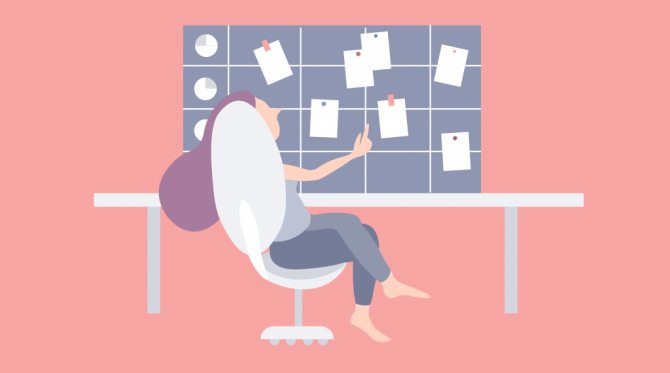In fact, the opinion that you should not eat at all in the evening is erroneous, since at night the body launches numerous regeneration processes, which require a supply of energy.
In order not to harm your figure, you just need to eat the right foods in the evening.
Myth #1: What you eat after 6 is not digested
In fact:
The digestive organs, gastrointestinal tract, and pancreas work at night in the same way as in the morning or during the day. The body copes well with the food that you eat even after 18, even after 19 hours. The common misconception that metabolism slows down in the evening and at night is false. Nutritionists are convinced that daytime and nighttime metabolism are absolutely the same, and their speed depends only on the individual characteristics of a particular person. Thus, poor digestion of food as a reason not to eat after 18 hours disappears.
FoodQuestion to an expert: Is it true that eating after six is harmful?
answers to most of the questions that concern us online. In this series of materials, we ask just such questions - burning, unexpected or common - to professionals in a variety of fields.

“Don’t eat after six” has long entered the Russian language, not only as a synonym for a weight loss formula, but also as a healthy habit. Does this claim have scientific basis? Are evening calories different from morning calories? Let's figure it out together with an expert.
Masha Budrite
nutritionist, graduate of King's College London
Where the idea came from that to lose weight or improve health is better not to eat after 18:00 is unknown. This figure appears mainly in the post-Soviet space, and in English-speaking countries you can more often hear about eight in the evening. The expression “Eat breakfast yourself, share lunch with a friend, and give dinner to the enemy” is attributed to the Russian commander Alexander Vasilyevich Suvorov, who, apparently, had very strict rules for the daily routine. Duke Richelieu wrote about him in his memoirs: “Suvorov has lunch in the morning,” he writes, “he has dinner in the afternoon, sleeps in the evening, sings part of the night, and at dawn he walks almost naked or rolls in the grass, which, in his opinion, is very good for health.” ...“. The French military leader Comte de Damas, who served in the Russian army for several years, was once invited by Suvorov to dinner “sharply at six,” but when he arrived at the appointed time, it was explained to him that the commander-in-chief meant six in the morning, not in the evening. Perhaps the popular restriction on eating “after six” is connected with this story.
In traditional Chinese medicine, it is believed that depending on the time of day, different “meridians”—areas of circulation of “energy” within the body—are activated in the body. The day is divided into twelve segments, each of which corresponds to the greatest activity of a certain meridian. According to Chinese sages, it is best to wake up and empty the colon from five to seven in the morning, to have breakfast from seven to nine, and breakfast should be the largest meal of the day - supposedly at this time the stomach is most active. Lunch occurs between eleven in the morning and one in the afternoon, and the last meal should be from five to seven in the evening (from nine to eleven you need to go to bed). From the point of view of Chinese medicine, if you follow these and some other instructions, you can achieve a balance between positive energy (yin) and negative energy (yang).
Of course, such a view is far from evidence-based medicine - today science has not found any evidence that human health depends on the movement of intangible “energy” in the body. From the point of view of science, we have a “biological clock”, and it is not based on metaphysical energy, but on proteins that control biochemical and physiological processes in cells. The main “clock” with which the others are synchronized is located in the hypothalamus, and the main stimulus for them is light. Circadian rhythms are influenced by various external and internal factors - time zone changes, shift work, unstable times of waking up and falling asleep. Circadian rhythms determine the state of the body during the day, affecting, among other things, the quality of sleep, hunger and mood. For the discovery of genes responsible for the production of biological clock proteins that influence circadian rhythms, Jeffrey Hall, Michael Rosbash and Michael Young received the Nobel Prize in 2021.
Modern dietetics believes that from the point of view of weight loss and gain, it is only important how many calories a person received per day and how many were spent, regardless of what time of day the person ate. However, in some studies, mice that ate before bed gained weight compared to animals that ate the same amount of calories at other times of the day. Problems arose when the lights were turned on for the animals at night—apparently, their circadian rhythms were disrupted.
The only important thing is how many calories a person received per day, regardless of what time of day the person ate.
Studies in humans show different results. According to nutrition and lifestyle statistics for British children from the largest analysis of the National Diet and Nutrition Survey, eating after eight in the evening is not associated with increased weight. The same thing happens with diet in adulthood - the total number of calories received per day has a stronger effect on body mass index than the timing of meals. An important nuance: scientists say that people who eat at night have a higher risk of getting too many calories in a day as a whole. A late dinner in itself is not a problem; but the situation when the food at night is something like a second or even third dinner should raise questions.
A recent study in Japan found that a short interval (less than two hours) between dinner and bedtime does not affect blood glucose levels and does not increase the risk of diabetes. Eating late can lead to unpleasant consequences such as abdominal discomfort and difficulty falling asleep. In this regard, the recommendation “not to eat after...” may have its place, but the specific numbers depend on when you go to bed; If you have heartburn or bloating, it is recommended not to eat 3-4 hours before bedtime. Of course, the approach must be individual: one person sleeps better if several hours have passed after dinner, while another needs a snack or a glass of milk just before going to bed.
In recent years, intermittent fasting has gained popularity. According to one of its variants, you can only eat for eight hours a day, and for the remaining sixteen hours you must abstain from food. Some studies show that this approach can be beneficial: various organs respond better to insulin, and a number of risk factors for cardiovascular disease, such as “bad” cholesterol, inflammatory markers, and others, are reduced. However, studies in people following this diet have been brief and do not show how this eating pattern affects long-term health. The problem with this approach is that, as with any diet with strict rules, there is a risk of “relapse,” and alternating diets and relapses can lead to a whole range of eating disorders.
Dietitians and nutritionists never tire of repeating that to stay healthy, it is much more important to maintain a balanced diet and work on eating habits than to try short-term solutions like diets. Avoiding food when you feel hungry may not produce the desired results, leaving you feeling tired, anxious, or in a bad mood. If you are concerned about your own eating habits, you should contact a specialist who will help you figure it out and give you the necessary recommendations.
PHOTOS: zilvergolf – stock.adobe.com, store.moma
Myth #2: Everything you eat after 6 turns into fat
In fact:
Food eaten after 18.00 does not turn into fat and does not provoke excess weight gain. What matters is not what time you eat, but how much and what exactly. You definitely shouldn’t overeat at night, just like at any other time of the day. Weight gain is triggered by two other factors: low physical activity during the day and consuming more calories than burned.

If you are on a weight loss course and are on a diet, then it is not necessary not to eat after 6 p.m.,
to see the results:
- Just limit your intake of foods containing carbohydrates 3-4 hours before bedtime.
- Try to have dinner no later than 2 hours before bedtime (For example: go to bed at 22.00 - dinner maximum at 20.00)
Why is it still possible to eat after 18-00?
Nutritionists convince us: after sunset, metabolic processes in the human body slow down, food absorption and calorie burning are no longer as active. It would seem that for those who want to lose weight, the recommendation not to eat in the evening is very logical. However, life makes its own adjustments. For example, how to eat in the summer, especially for those who live in the south - there, at 6 o’clock in the evening you can still sunbathe on the beach. And in the North it’s completely dark for six months - no food at all?
The notorious division into “night owls” and “larks” should not be discounted, says minuskg.ru. Each person lives according to his own specific biorhythms. For some, it’s quite natural to get up at the crack of dawn, have a hearty breakfast, have lunch on time, have dinner around 6 p.m., and three or four hours later you want to go to bed, so the question of what you can eat after 6 p.m. won’t bother them.
But there are many among us who happily sleep until noon, and sometimes have breakfast when it’s time to have lunch. And if, due to circumstances, the “owl” needs to wake up early, then she thinks: since I can’t have dinner in the evening, I’ll eat more in the morning. Meanwhile, the body is still “sleeping” and is not capable of fully absorbing food. So it turns out that the deposition of reserves into fat depots in “late birds” occurs in the morning. At the same time, those who do not go to bed before midnight will, of course, experience pangs of hunger after six, and the body does not need extra stress. In this case, wouldn’t it be better to postpone breakfast and, accordingly, dinner to a later time than diets dictate, of course, taking into account what you can eat after 6 pm and what you can’t?
How to force yourself not to eat in the evening
Scientists say that it takes a person a little less than a month to turn a certain action into a sustainable habit. If you can find a way to force yourself not to eat after 6 for about 3 weeks, then this ban will be easier to accept. Here you need to pay attention to the psychology of the issue:
- Clearly answer yourself why you need to lose weight - without serious motivation you will not last even a day.
- Decide whether you are actually experiencing physical hunger, or whether it is a habit, or a craving for joy hormones.
- Learn to look for happiness not in food, and if your hunger is “from boredom,” find yourself a job for the evening that will distract your brain.
- Convince yourself that you can do anything, but at breakfast, after eating in the evening, upon waking up you will treat yourself to your favorite delicacy.
- Remove high-carbohydrate foods and sweets from your visibility - the less often they come into your sight, the less you crave them, especially in the late afternoon.
- Tea tree oil - properties and uses for the treatment of various diseases
- Sesame oil - beneficial properties and contraindications. Composition and use of sesame oil with reviews and prices
- Home dough mixer
What are the dangers of not eating after 6 hours?
Not eating after 6 pm can be harmful. When deciding not to eat anymore after 6, you should consider your bedtime, wake-up time, activity during the day, number of meals, its calorie content, and physical activity. If you just stop eating after 6 pm, you can get problems:
- If you refuse to eat after 6 pm and have breakfast later than 6 am, the body will inevitably begin to store fat. After all, fasting after 6 and getting up, for example, at 9, means that by this time the body has already gone 15 hours without food. He regards such a break as hunger and begins to actively stock up. This is how extra centimeters appear in unexpected places.
- Going to bed on an empty stomach can lead to ulcers or gallstones. Even during sleep, the body continues to secrete digestive enzymes in the stomach and bile in the gallbladder. Metabolic processes do not stop even at night. We need to remember this.
- If you refuse an evening meal, the risk of muscle loss increases. Having not received the glycogen needed for processes from food, the body extracts it from muscle tissue. This reduces the effectiveness of training.

- Fasting after 6 slows down your metabolism. This happens because lipoprotein kinase begins to be produced. When its concentration increases, metabolism goes into saving mode and accumulates even more fat mass.
Where did this myth come from?
The myth of eating after 6 was harmfully invented by show business stars, dancers and actresses, and later they were joined by crowds of girls who had lost hope of losing weight.
Everything is clear with the stars, they have their own schedule, and a hunger strike after 6 in their case is a necessity. But is it really necessary for an ordinary girl leading a normal life to skip dinner? Toward evening, the body's metabolic processes actually slow down, but it still works and needs nutrients. Therefore, refusing dinner after 6 pm can have its unpleasant consequences.
Hunger and losing weight have nothing in common!
Speaking about the ban on dinner after 18.00, you must first of all understand the regime by which a person lives. Probably, if you go to bed at 19.00-20.00, then the conversation will be the same, but if your night's sleep begins long after midnight, then the advice on your diet will be different.

The average daily routine of an office worker looks something like this:
- 6.00-7.00 – rise;
- 8.00 – breakfast;
- 9.00-18.00 – work process.
This may come in handy: 7 office lunch rules: how to eat to work better
If we cancel dinner after work, we will force our body to starve for 12-13 hours. This is almost half a day. In this mode, the body inevitably experiences stress, which means it turns on an emergency mode in which fat deposits cannot burn out, since they are a backup source of energy. Simply put, he is afraid that no more nutrients will be supplied and saves the existing fat.
Moreover, every meal will be aimed at replenishing fat reserves. After all, you rarely eat, which means this strategy makes sense for the body. The fact of constant hunger significantly slows down your metabolism.

And I managed to lose weight without eating dinner...
Avoiding dinner can be practiced on fasting days; this will have a positive effect on the functioning of your gastrointestinal tract. In this way, you can also remove excess intercellular fluid. This will have a beneficial effect on your weight, but you will lose no more than 2-3 kg. The further process requires a radically different approach.
It is also worth noting that excess fluid accumulates in the body due to excess salty, sweet, fatty or fried foods. Which in itself is contrary to the rules of proper nutrition. If your dinner meets all the standards of a healthy diet, you will not retain excess fluid; on the contrary, you will feel cheerful and energetic after each meal.
Why can't you eat after 6 pm?
Why it is not recommended to eat after six:
- In the evening, metabolism slows down, all the food eaten is not processed into energy, but remains in the body in the form of fat
. - A heavy dinner impairs sleep. A full stomach puts pressure on the diaphragm, which causes insomnia and frequent awakenings
. - During sleep, the work of the gastrointestinal tract slows down, so the food eaten is retained in the stomach, causing putrefactive processes.
- Prolonged stay of food in the stomach contributes to the prolonged effect of hydrochloric acid on the mucous membranes.
- If you ate heavily for dinner, your appetite will be reduced in the morning. And the lack of a full breakfast means overeating at lunch and in the evening, decreased energy, and drowsiness during the day.
Perfect dinner
The perfect dinner follows a simple “plate rule.” Conditionally divide the dish into 4 parts: one for the side dish, the second for vegetables, the third for protein products and the remaining fourth for fruits. By following this rule, your body will receive all the essential nutrients.
An example of an ideal diet dinner:
- buckwheat grain;
- lean boiled poultry meat;
- vegetable salad;
- apple;
- a glass of water or a cup of green tea without sugar.
What to do if you really want to eat in the evening
Hunger that strikes at 6-7 o'clock is a natural phenomenon, which makes no sense to avoid. The body must receive a legitimate meal. It is much more important to figure out how not to overeat in the evening, but also to prevent the desire to swallow a whole pig half an hour after eating. Nutritionists recommend turning to light proteins: low-fat cottage cheese, chicken breast, fish, seafood, and supplementing them with vegetables. Only deprived of a large proportion of starch, otherwise the effect of trying to lose weight will be lost.
However, what should you do if you really want to eat in the evening even after dinner? A few recommendations:
- Eat some greens, whole grain bread, peppers, cucumber or cabbage - these foods, thanks to their fiber, will help curb hunger, and their low calorie content will prevent weight gain from eating in the evening.
- Brew mint tea - it also fights hunger well and is good for the central nervous system in the evening, as it relaxes it, so you fall asleep faster.
- Find a psychological way out for yourself on how to avoid eating in the evening - walk before bed, take a bath, do aromatherapy.










